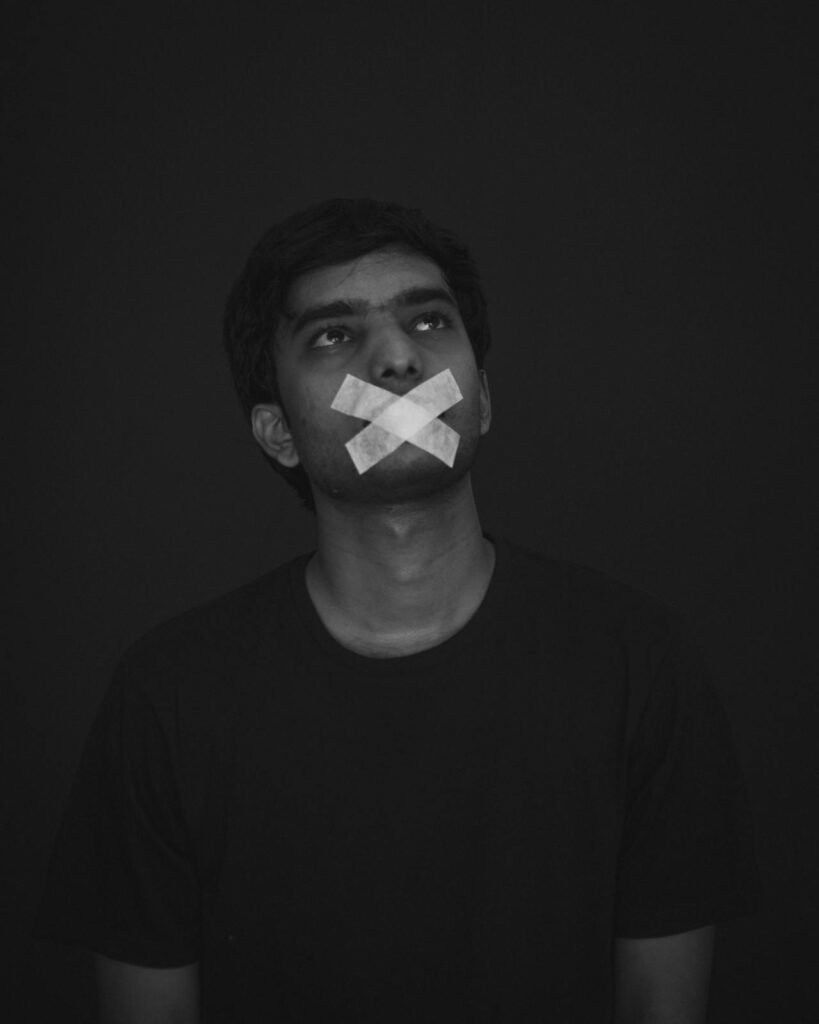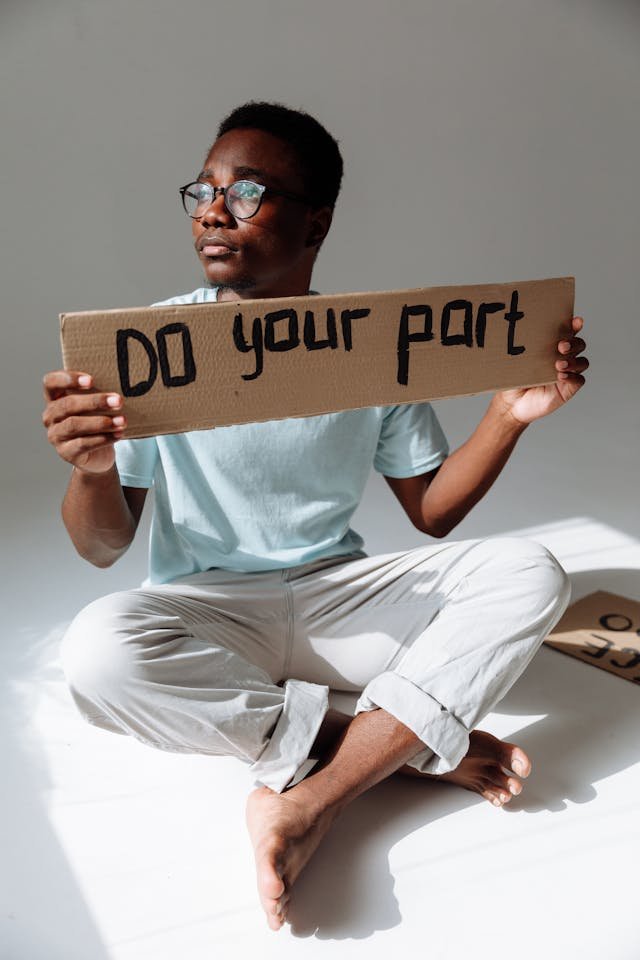
He Tried to Tell Us, But We Didn’t Listen: How Families Silence Men in Distress
When a man finally gathers the courage to speak about his pain, the response is often not just indifference, it’s outright disbelief. Families, conditioned by societal biases, frequently dismiss his suffering, assuming he must be exaggerating, lying, or even causing the problem. Why? Because in conflicts, especially those involving women, society reflexively sides with the woman, seeing her as inherently vulnerable and morally blameless. A man’s distress is met with skepticism, while a woman’s claims are treated as gospel.
This automatic assumption “She must be the victim; he must be at fault” leaves countless men trapped in silent torment. A husband finally breaks his silence about the constant belittling, the calculated isolation from friends and family, the relentless control over every aspect of his life, only to be told ‘marriage requires sacrifice’ or ‘she just wants what’s best for you.’ When he describes how her words cut deeper than any physical wound, how her unpredictable rage keeps him walking on eggshells in his own home, well-meaning relatives dismiss it: ‘Women are emotional, you need to be more understanding.’ If he dares to call it abuse, the response is even worse, ‘Be a better man, then she wouldn’t act this way’ or the ultimate betrayal: ‘What did you do to provoke her?’
This is the cruel paradox of emotional abuse against men in marriages: The more he tries to name his suffering, the more his pain is reframed as his failure. His cries for help become proof of his inadequacy rather than evidence of his torment. Meanwhile, her behavior gets excused as ‘just how women express love’ or ‘normal marital frustration.’ No one stops to consider that abuse isn’t about anger, it’s about power. And when a man’s voice is systematically erased in the name of keeping the peace, that peace is just another word for his surrender.
These double standards don’t just invalidate men’s pain; they enable their suffering. When families refuse to listen, when they instinctively defend the woman, no matter how cruel or controlling her behavior, they become complicit in the man’s isolation. By the time the truth becomes undeniable, it’s often too late. The damage is done. The man is broken, or worse, gone. And then, in hushed tones, the same people who dismissed him whisper: “We should have known. We should have listened.”
But regret doesn’t bring back the dead.
This is why we must stop assuming and start listening. Why we must question our biases before they cost another life. Why we must recognize that men, too, can be victims and that their voices matter just as much.
Because when we silence men in the name of protecting women, we don’t protect anyone. We just teach men that their pain is irrelevant.
And that lesson can be fatal.
Why Men Don’t Speak Up and Why We Must Speak for Them

From childhood, many men are conditioned to equate vulnerability with weakness. Society tells them to “tough it out,” to swallow their pain, and to never let their struggles show. This expectation isn’t just harmful, it’s deadly. When men suffer in silence, their pain goes unrecognized, their abuse goes unchallenged, and their cries for help go unheard until it’s too late.
Cultural and religious pressures often reinforce this silence. In some communities, admitting hardship is seen as a failure, a stain on family honor or a betrayal of faith. Men may fear backlash, ridicule, or even punishment if they speak out against those harming them, especially if the abuser is a family member, a religious leader, or someone in a position of authority. The weight of shame and fear keeps them trapped, their suffering buried beneath layers of forced smiles and hollow reassurances.
Even when men do try to speak up, they are often met with dismissal. “You’re overreacting.” “Be a man.” “Don’t air dirty laundry.” These responses teach them that their pain doesn’t matter or worse, that it’s their fault. Over time, they internalize the message: No one will help me. No one cares. And so, they stop trying.
This is why we must speak for them. Because silence is not protection, it’s abandonment. Because a man’s dignity should never be measured by how much suffering he can endure. Because if we wait until he’s gone to acknowledge his pain, we’ve already failed him.
We must be the ones who listen when no one else will. We must be the ones who challenge the lies that keep men trapped in silence. We must be the ones who say, “Your pain matters,” before it’s too late.
The cost of silence is measured in buried truths and lives cut short. But the power to break that silence lies with us in our willingness to see, to question, and to speak, even when it’s uncomfortable.
Because no man should have to suffer alone. And no voice should be lost forever.
How to Break the Cycle

The silence surrounding men’s emotional suffering in relationships isn’t just a personal tragedy it’s a systemic failure. But cycles can be broken, and change begins when we refuse to accept the old, destructive narratives that have trapped generations of men in shame and isolation.
First, we must validate men’s pain without caveats. When a man says he’s being emotionally abused, our first response should never be skepticism, dismissal, or blame. It should be belief. Abuse thrives in secrecy, and the moment we start listening really listening, we take away its power.
Second, we need to redefine strength. True strength isn’t enduring endless suffering in silence; it’s having the courage to name the hurt and seek help. We must stop equating masculinity with stoicism and start celebrating vulnerability as an act of bravery.
Third, we must challenge the biases that protect abusers. Just because someone is a woman doesn’t mean she can’t be cruel, controlling, or manipulative. Holding women accountable for emotional abuse isn’t misogyny, it’s justice. And justice should never have a gender.
Finally, we must create spaces where men feel safe to speak. Whether it’s through therapy, support groups, or simply trusted friendships, men need allies who won’t judge them for their pain but will stand beside them as they heal.
Breaking the cycle starts with one voice then another, and another. It starts when families stop excusing abuse as “marital struggles” and start calling it what it is. It starts when friends refuse to laugh off a man’s distress and instead say, “I hear you. This isn’t right.”
The cost of silence is measured in broken men and buried pain. But the cost of speaking up? That’s where healing begins.
So speak. Listen. Believe.
Because no one should have to suffer alone and no one should have to die to be heard.
—Banchu (Nama)